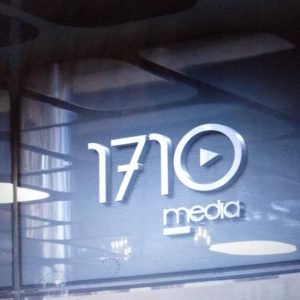We may be living in an age of instant access to music, where playlisting is key, but despite the rise of streaming and songs on demand, getting your music played on the radio is one of the most effective ways to reach the masses.
Getting your tracks played on the radio can make a big impact on your career, so it’s important to approach radio stations in the right way, to give yourself the best chance of making it onto the airwaves. Airplay is tricky to secure, so be patient, make sure your tracks are water-tight and don’t be too discouraged if you don’t the results you want immediately.
How to get your song on the radio
Know who to approach
When it comes to approaching radio stations, you need to know who to contact.
If you’re targeting larger radio stations, you should find the contact details of whoever decides which tracks get played. This could be a specific DJ, or the station’s producer, program director or music director. If you’re approaching a smaller radio station, it’s likely they won’t have many staff on-board, so a generic contact (at) radiostation (dot) com should do the trick.
Look on the station’s website or social media to get the contact details you need, or alternatively just give them a call and ask for the producer’s info (they may or may not give it to you - but it's worth a try!).
Some stations will only accept submissions from certain sources or in a specific formats, so do some research to make sure you're doing things the right way before sending anything.
Know how to submit your music
Have you found the contact details of the decision-makers at the stations you’re targeting, but there’s no clear information on how you can submit tracks?
Sending an electronic press kit, music press release or one-sheet including links to 1-3 of your best tracks is the most common way to approach radio stations, as well as press publications and blogs. The key is to make your email or press pack stand out and grab their attention. Make sure your tracks are clearly named and don’t send mp3 files. Instead include links to your songs.
Some people prefer to send or receive physical copies of their music to radio stations, but this is becoming less and less prevalent. Generally, DJs and stations receive the majority of their submissions and demos in digital format.
Target the right stations
Don’t expect to get your track played on a huge national station right away. Radio airplay is incredibly competitive, and there are hundreds, if not thousands, of other artists out there in the same position as you.
But it's ok to start small. There are plenty of independent, student and internet radio stations accepting submissions from up and coming bands and artists. These smaller stations won’t be as inundated with submissions either, so you’ll stand a much better chance of getting played early in your career.
Contacting genre-specific stations is also an effective way to get airplay. If you’re an emerging rapper, send your track to a hip-hop broadcaster, or if you play thrash metal, make sure you’re contacting a station that regularly plays your style of music.
Create a buzz
Ultimately, the most effective (but also most difficult) way to get radio airplay is to create hype around your music organically, develop a loyal fan base, and force the radio stations to take notice.
There’s no guaranteed formula for success when it comes to generating a buzz around your band. Just get out there, play live as often as possible, connect with your fans and the music biz, release music on Spotify and other stores, and most importantly, make great music!
Hire a radio plugger
If you make great music, but you’re struggling to get the radio airplay you deserve, it could be time to hire a radio plugger.
Radio pluggers act as a mediator between you and the radio stations and usually have a long list of contacts they acquired over many years in the industry. These industry professionals will have an existing relationship with radio tastemakers, giving them more influence and sway when it comes to radio stations, DJs and decision makers.
Getting your songs played on the radio isn’t easy. Make sure you’re targeting stations that are suitable for your music and the stage you are at in your music career.
It’s important to be realistic, persistent and most of all, make music that will grab the attention of influencers and radio stations. Good luck!
Radio Stations Airplay
1710Media works closely with DJs, Production & Program directors, and station managers at the nation's most respected and prominent radio stations.
Since inception, 1710Media has specialized in helping brands and musicians get radio airplay around the country and beyond. Depending on your goals, we can develop a targeted radio campaign with either a national or regional focus.





